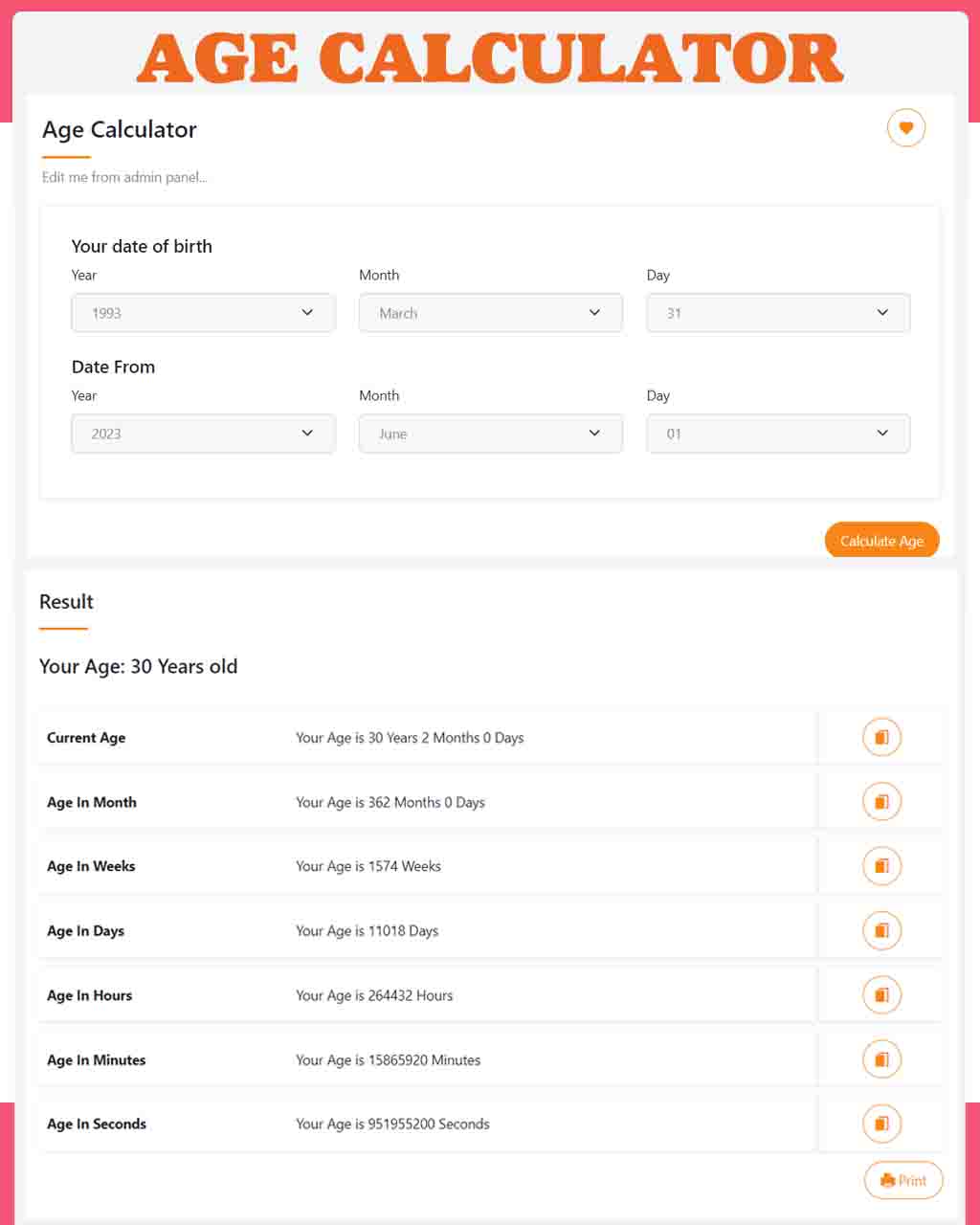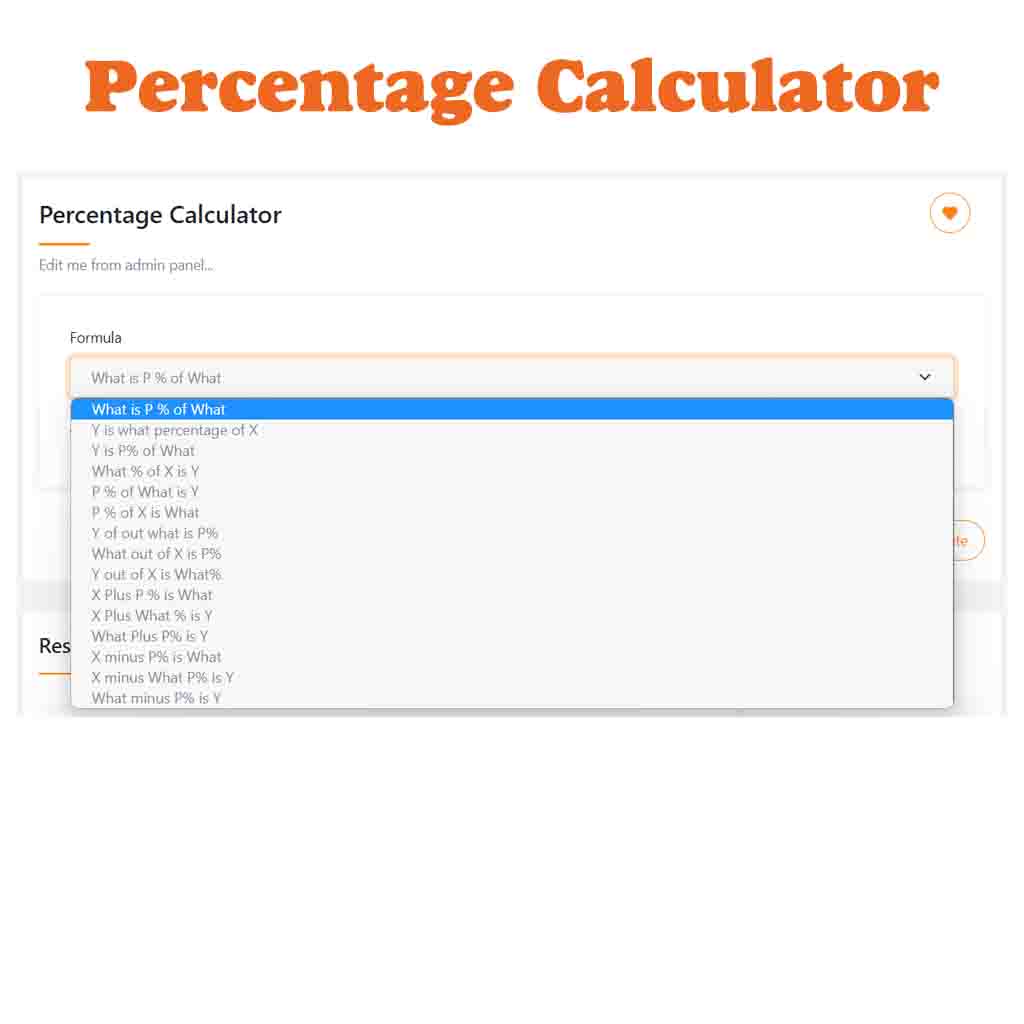
Age Calculator by Year: A Simple Tool for Determining Your Age
Calculating one’s age may seem like a straightforward task, but when dealing with years, it can sometimes be challenging, especially when considering leap years and specific date formats. Thankfully, there are age calculators available that simplify the process and provide accurate results. In this article, we will explore the concept of an age calculator by year and how it can be a convenient tool for determining your age quickly and easily.
The Need for an Age Calculator:
Knowing your age is important for various reasons, including legal purposes, eligibility for certain benefits, or simply satisfying your curiosity. However, manually calculating age can be prone to errors, particularly when considering factors like leap years, birthdate variations, or dealing with different date formats across regions. An age calculator by year simplifies the process, ensuring accuracy and saving you time and effort.
Age Calculator : Link
How Does an Age Calculator by Year Work?
An age calculator by year operates on a simple principle. You input your birthdate and the current year, and the calculator processes this information to determine your age accurately. By accounting for leap years and variations in month lengths, the calculator provides an accurate age calculation based on the given parameters.
Benefits and Features:
a. Accuracy: An age calculator by year eliminates the possibility of human error that can occur when manually calculating age. It considers leap years and variations in the number of days in each month, resulting in precise and reliable age calculations.
b. Convenience: With an age calculator by year, determining your age becomes quick and hassle-free. You no longer need to count days, months, or years manually. By simply inputting your birthdate and the current year, the calculator does the math for you, providing an instant and accurate result.
c. Flexibility: Age calculators often offer flexibility in date formats, allowing you to input birthdates in a format that suits your preferences or local conventions. Whether it’s day-month-year or month-day-year, the calculator can handle different formats to accommodate users from various regions.
d. Additional Information: Some age calculators may provide additional information alongside your age. This can include the day of the week you were born, the total number of days you’ve lived, or other interesting facts related to your birthdate.
Other Uses of Age Calculators:
Age calculators have applications beyond individual age calculations. They can be used for determining the age of historical figures, tracking age differences between individuals, or calculating the age of events or milestones. The versatility of age calculators makes them useful tools in various fields, including genealogy, research, or event planning.
Privacy and Data Protection:
When using an age calculator by year, privacy and data protection are important considerations. Ensure that you use a reputable and trusted calculator that takes appropriate measures to protect your personal information. Be cautious when providing sensitive data and choose calculators that prioritize user privacy.
Related Articles
Conclusion:
An age calculator by year simplifies the process of determining your age accurately and efficiently. With its ability to handle leap years and date variations, this tool eliminates the guesswork and potential errors associated with manual age calculations. Whether you need to know your age for legal reasons, curiosity, or any other purpose, an age calculator provides a convenient solution. Embrace the ease and accuracy offered by age calculators and enjoy a hassle-free way of determining your age with just a few simple inputs.
Fequently Asked Questions
Q1: What is an age calculator?
A1: An age calculator is a tool or program that calculates a person’s age based on their birthdate and the current date.
Q2: How does an age calculator work?
A2: An age calculator subtracts the birthdate from the current date to determine the number of years, months, and days a person has lived.
Q3: Can an age calculator handle leap years?
A3: Yes, an age calculator takes leap years into account when calculating the age, ensuring accurate results.
Q4: Can an age calculator calculate age in different units?
A4: Yes, an age calculator can calculate age in various units such as years, months, days, hours, minutes, and seconds.
Q5: Can an age calculator calculate the age of a person in the past or future?
A5: Yes, an age calculator can calculate the age of a person based on any given date, whether it’s in the past or the future.
Q6: Does an age calculator account for time zones?
A6: An age calculator typically calculates age based on the local time of the system or device it is running on. It may not account for specific time zones unless specified.
Q7: Can an age calculator calculate the age of a group of people?
A7: Yes, some age calculators allow you to input multiple birthdates and calculate the age of each person in the group.
Q8: Is it necessary to provide the birthdate in a specific format to the age calculator?
A8: Most age calculators can handle a wide range of date formats, including MM/DD/YYYY and DD/MM/YYYY. However, it’s recommended to check the format requirements of the specific calculator being used.
Q9: Can an age calculator calculate the age in different calendars (e.g., Gregorian, Lunar)?
A9: Some advanced age calculators may offer the option to calculate age in different calendars, but most commonly used age calculators work with the Gregorian calendar.
Q10: Can an age calculator calculate the age of a person who has not been born yet?
A10: No, an age calculator requires both the birthdate and the current date to calculate the age, so it cannot calculate the age of a person who has not been born.
Q11: Can an age calculator account for time differences due to daylight saving time?
A11: An age calculator usually considers daylight saving time based on the system’s time settings. However, it’s important to verify that the calculator being used accounts for daylight saving time if it’s a critical factor.
Q12: Are there any recommended age calculator tools or websites?
A12: Several age calculator tools and websites are available online, including timeanddate.com, calculator.net, and agecalculator.net.
Q13: Can an age calculator calculate the age of historical figures?
A13: Yes, an age calculator can calculate the age of historical figures based on their birthdate and the date being considered.
Q14: Can an age calculator calculate the age of a pet?
A14: Yes, an age calculator can calculate the age of pets as well. Some calculators may offer specific age conversion formulas for popular pet species.
Q15: Can an age calculator calculate the age in other units like dog years or cat years?
A15: Yes, some age calculators provide the option to convert human age into equivalent “dog years” or “cat years” based on common age conversion formulas.
Q16: Can an age calculator account for time spent in the womb (pregnancy)?
A16: Most age calculators do not consider time spent in the womb and calculate age from the birthdate onward.
Q17: Can an age calculator calculate the age of an event or milestone?
A17: No, an age calculator specifically calculates the age of a person based on their birthdate. To calculate the age of an event or milestone, a different type of calculator or method may be needed.
Q18: Can an age calculator estimate life expectancy?
A18: No, an age calculator only calculates the age based on given dates and does not provide life expectancy estimates.
Q19: Can an age calculator calculate the age of a person with a different calendar system (e.g., Islamic calendar)?
A19: Some specialized age calculators may offer the option to calculate age using different calendar systems. However, most commonly used age calculators work with the Gregorian calendar.
Q20: Can I use an age calculator on my mobile device?
A20: Yes, there are age calculator apps available for various mobile devices, making it convenient to calculate ages on the go.
